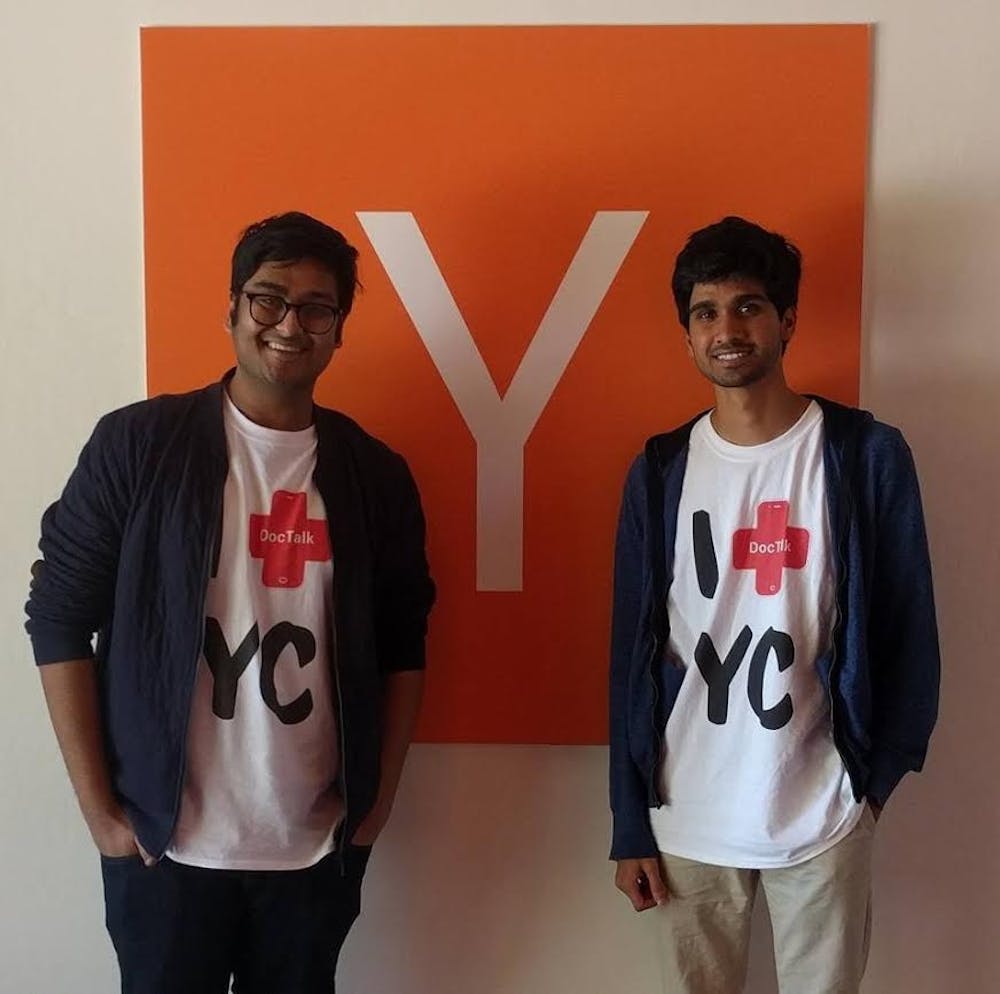With resources like the newly opened Jonathan M. Nelson Center for Entrepreneurship as well as programs such as Brown EP, Startup@Brown, Hack@Brown and independent studies in business, Brown students are well-equipped to develop innovative solutions to commercial and social problems through startups. Student startup founders currently studying at Brown have drawn from their experiences here and the vibrant intellectual community surrounding them for both conceptual and emotional inspiration.
Isabella Amram ’17 was sick one night while her friends were busy studying for finals, and she had a paper due at midnight. This was the inspiration for the startup Fetchum — formerly called The Number.
The company offers an on-demand delivery service, allowing customers to ask Fetchum employees, or “chums,” to deliver goods to wherever they are.
“It’s a college-based system on (the) consumer and employee side” Amram said, adding that Fetchum will offer flexible student employment around Brown and the Rhode Island School of Design and eventually spread out to other American college campuses.
Similarly, Pangea — an app founded by John Tambunting ’16.5 and Adam Alpert ’17 — aims to serve as a “practical network for the sharing economy” in which students can buy and sell their “diverse set of skills (and) experiences,” Tambunting said.
The app would allow, for example, RISD “students (to advertise) their art or to commission themselves for projects” and others to “offer to cook a meal for a bunch of friends.” Tambunting added that the app could also connect users with like-minded people, and that a messaging and rating system will “legitimize the process.”
A computer science concentrator, Martin Zhu ’17 wanted to make bots — which store small amounts of data known as micro-data — available to the everyday user. Zhu defines micro-data as “data so small that it doesn’t make sense to store it or put it on a website.”
With co-founder Toshin Panigrahi, a Boston University senior, Zhu founded Botler, an interactive platform that allows users with no programming experience to build bots. For example, bots built on the platform helped Zhu store high school homework assignments.
Krishna Aluru ’17 was inspired to build a startup by a time he went to the movies with his dad. “My father had to walk out three times because he kept getting calls from his patients,” Aluru said.
Four months ago, Aluru launched his app DocTalk, which allows patients to subscribe to doctors for a small fee, and the doctors can update patients’ medical records, send them prescriptions and advise them through the app.
Though the app was not directly inspired by Aluru’s experience as a student, he said that Brown students more broadly serve as inspiration because “very rarely in life do you get a chance to be surrounded by so many amazing people all at once.”
Amram received much support and inspiration from various University resources, including Associate Professor of the Practice in Engineering Jason Harry at the Breakthrough Lab, Professor Emeritus of Engineering and Adjunct Professor of Engineering Barrett Hazeltine’s ENGN 0090: “Management of Industrial and Nonprofit Organizations,” Innovation Dojo and BrownEP. Based on her experiences with these programs and faculty members, Amram understood she liked solving “problems … using creative solutions.”
Aluru said faculty members “reinforce you and make you feel better,” which helped him found his startup.
Aluru worked as a head teaching assistant in Professor of Computer Science Stan Zdonik’s CSCI 1270: “Database Management Systems” and did research his sophomore summer with Assistant Professor of Computer Science Stefanie Tellex.
All around, student startup founders cited the difficulties of balancing their businesses with their school work. Most students preached time management as the solution to minimizing stress.
Zhu said startup aspirants should “compartmentalize time” rather than wasting it on non-productive activities.
“I am a huge advocate of writing detailed schedules everyday. I even write down when I am having lunch,” Amram said. A schedule tells you when to do what, allowing you to “focus your brain power on how you are going to do it.”
To balance DocTalk with school work, Aluru said he opted for easier classes this semester and took advantage of an independent study. “If one of your classes can be building the app, then you won’t have to face the problem of when to allocate your time for it.”
“As long as you are genuine and express that you really care about working on something, professors would allow you to opt for independent study,” Aluru said.
While others managed their startups during school, Tambunting said he took his spring semester off to work on Pangea. “I had the luxury to put all my focus on it,” he said.
Back at school Tambunting said he chooses “to stay in the (Center for Information Technology) and talk to computers instead of talking to my friends.”





